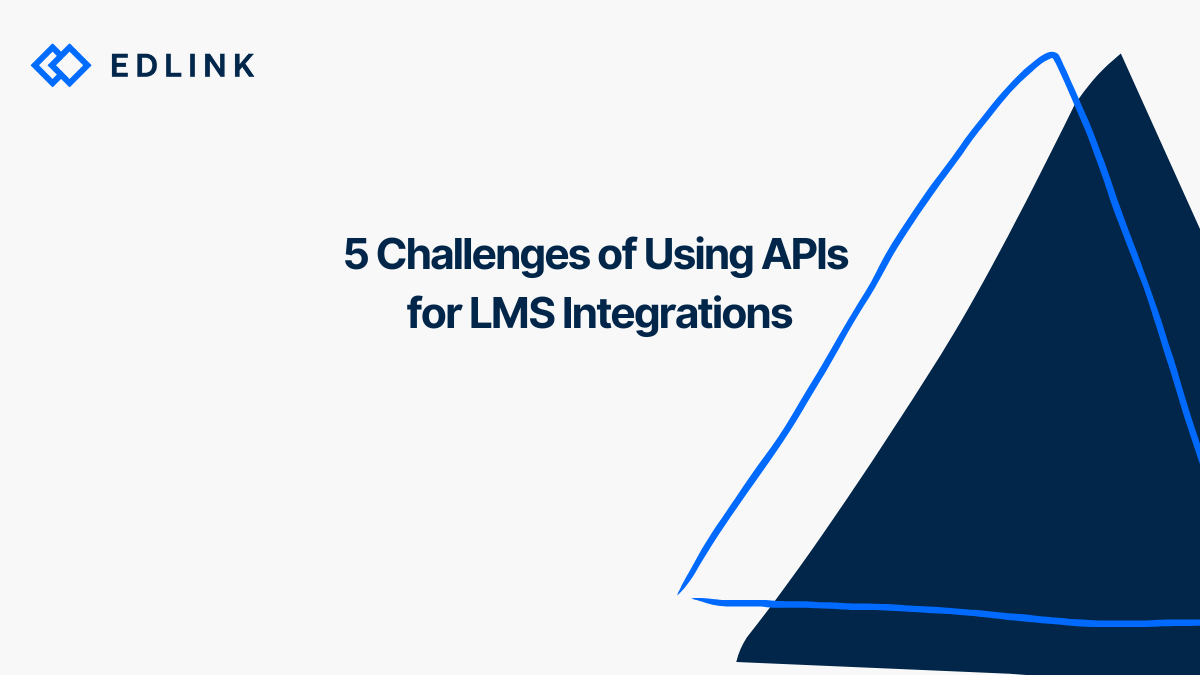1. APIs are not standardized
The API for each LMS is proprietary. This means that each API is different for each LMS. Without the use of an intermediary (e.g. the Edlink API), edtech developers cannot reuse an API integration that’s written for 1 platform with another. This is where API is dissimilar to LTI. An LTI app can be used across different LMSs as long as those systems support the standard.
2. There can be multiple versions of the LMS API
Some LMSs have certain API functions that are separated from the main version of the API. For example, the API calls for creating assignments in Microsoft Teams are in beta. This means that any integrated application that uses that Microsoft Teams API could break in the future if Microsoft were to change the API.
Additionally, Canvas offers both a REST API and a GraphQL API that edtech products can use to integrate with Canvas environments. Canvas said that its GraphQL API will be the primary focus for development in the future. However, there are many parts of Canvas that are not yet compatible with the GraphQL API. Thus, edtech products may need to use both the REST API and GraphQL API depending on the integration.
3. API integrations often requires buy-in from school administrators
Many LMSs require a form of administrative approval to integrate with the platform. For example, Microsoft Teams and Canvas integrations require an administrator to authorize access to a third-party application. As expected, the authorization process isn't straightforward and a developer may need to provide guidance to school admins to configure and connect to the edtech product.
4. APIs may not fully work for certain self-hosted environments
Certain LMSs, such as Canvas and Blackboard, have many schools that use a self-hosted version of the LMS. When this happens, it’s the responsibility of the IT admin at the school to update the LMS and its configuration. So sometimes a school’s LMS environment lacks the necessary updates to support some API functions, which obviously can hurt an integration.
5. API Keys are very sensitive
Some LMSs, such as Canvas and Brightspace, require admins to generate developer keys for third-party applications to connect via API. These keys are very powerful and allow access to sensitive data in the LMS. If the keys are not transmitted and stored securely, it can present a huge vulnerability. Thus, edtech companies have to have a way to protect and secure these keys to integrate with Brightspace or Canvas.
Read More on Integrations
Here are other articles we’ve written on building integrations to help you on your journey:
- What to know about Single Sign-On for Education
- Single-tenant vs Multi-tenant: What’s better for your app’s security
Case Study: Schoolrunner - Why would I Work with Edlink Instead of Just Building My Own LTI Application?
- District Onboarding with Edlink
Want to Learn More about Edlink?
If you're looking for a partner who can help guide you through developing LMS integrations (like these), then let’s introduce ourselves. We’re Edlink!

